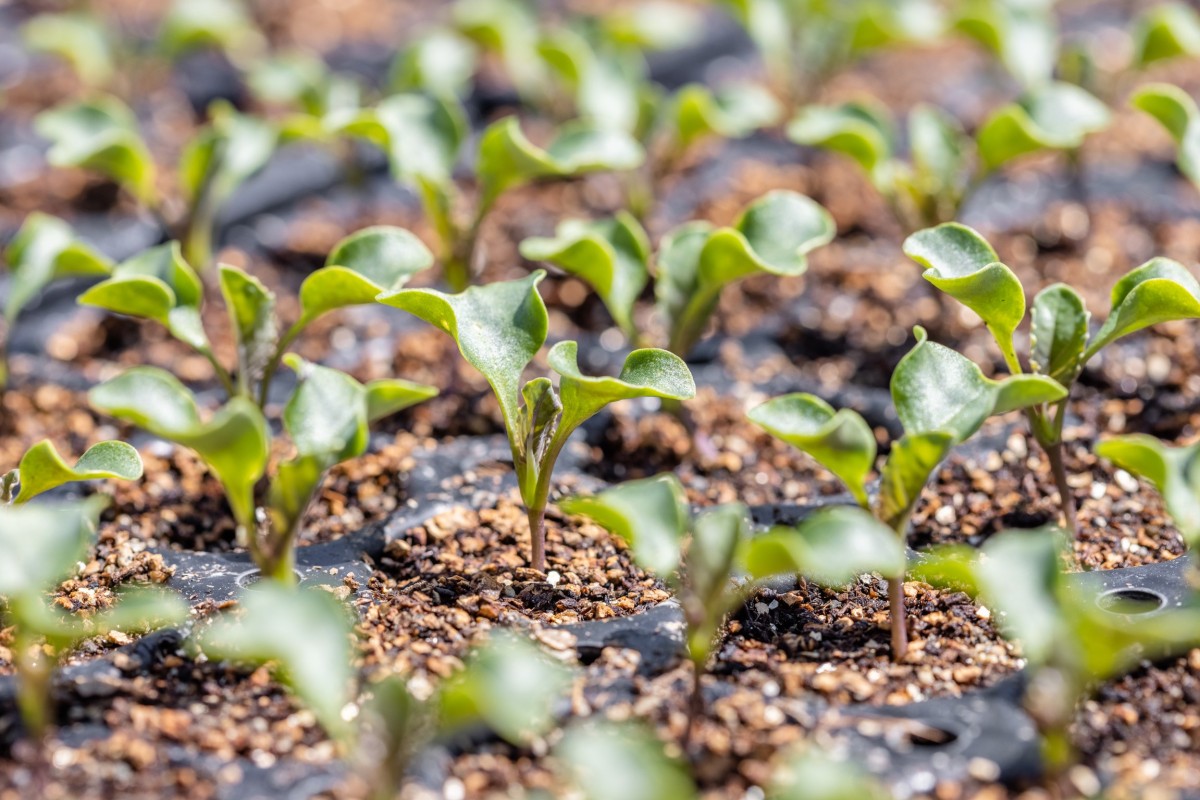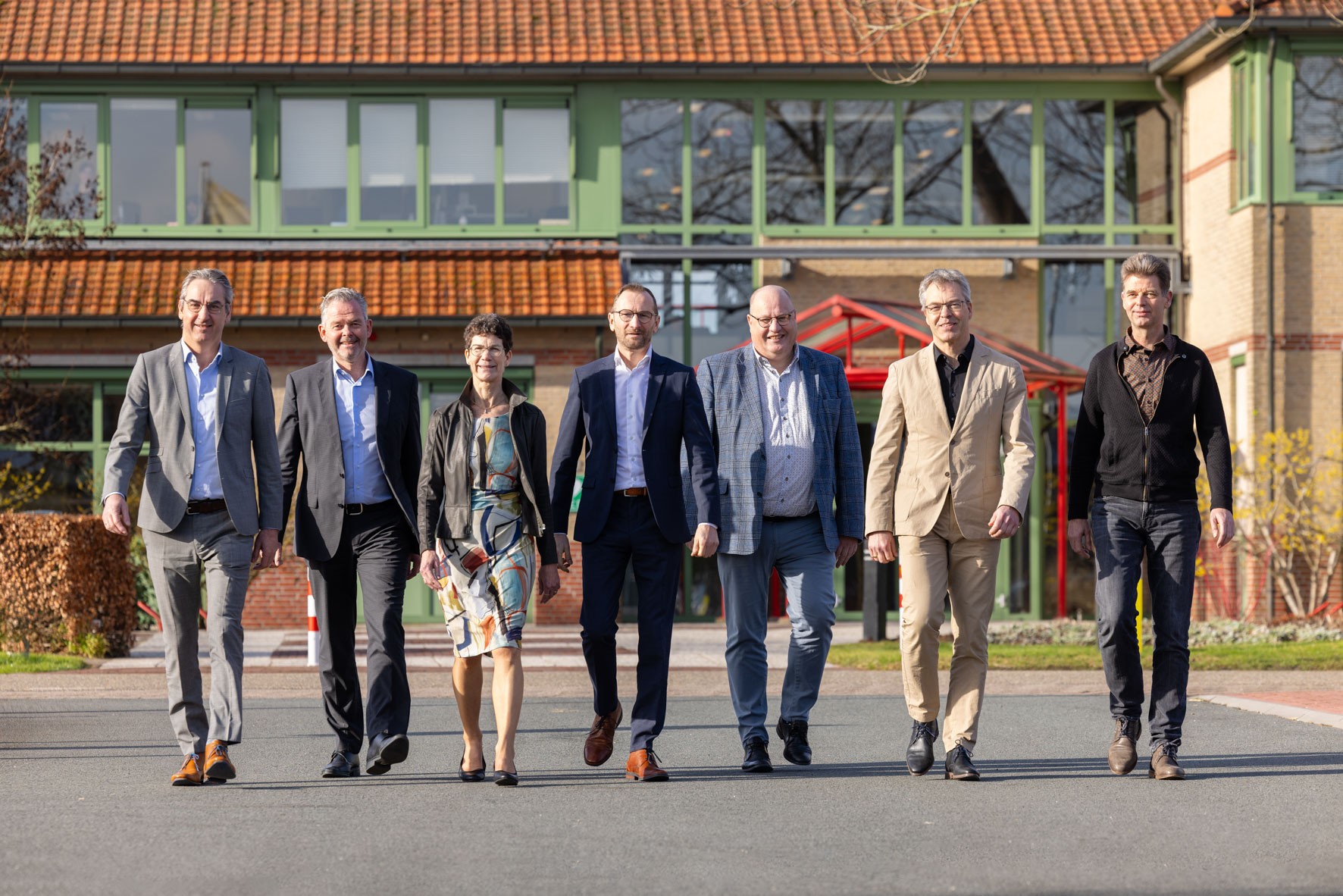Dutch horticulture leads the world. The Netherlands enjoys a national and international reputation for the quality of its seed and plant material. Growers and breeders create new varieties and provide reliable, healthy plant material such as seeds, cuttings and young plants.
We test varieties, perform inspections of seed and plant material and test material for pests and diseases so that entrepreneurs in the horticultural sector can trade their plant material worldwide. Together with national and international companies, organisations and governments we share our knowledge and expertise to promote learning and innovation.
Providing the horticultural sector all over the world with good, healthy and reliable, high-quality plant material and suitable varieties. That is what we stand for!
Naktuinbouw is the quality inspection service for the horticultural plant material sector
Each company in the Netherlands that intends to market and trade plant material is under a legal obligation to register with an inspection service. We are here to serve the horticultural plant material sector.
Naktuinbouw operates at the beginning of the chain. We ensure transparent, expert assessment and certification of plant material and plant varieties. We inspect seeds and planting materials for floricultural, vegetable and arboricultural crops. The Ministry of Agriculture, Fisheries, Food Security and Nature (LVVN) and the Netherlands Food and Consumer Product Safety Authority (NVWA) monitor our activities.
As an Autonomous Public Authority, we operate as an independent and unbiased party.

We work in compliance with European directives and European plant health regulations and legislation
The Netherlands Seeds and Planting Materials Act and the EU Plant Health Regulation form the basis for our inspections. A quality document and plant passport enable companies to trade a shipment of cuttings, seeds, young plants or trees within the European Union (EU). Naktuinbouw inspects whether the companies and their plant material comply with all the requirements. We also monitor the correct use of the plant passports that are mandatory in Europe.
Plant material intended for trading must comply with requirements and regulations. We translate European and Dutch regulations into the Naktuinbouw Inspection Regulations. These regulations clarify for companies which requirements apply to trading plant material.
We test plant material for pests and diseases
Tests provide insight into the quality of plant material. Naktuinbouw laboratories test plant material for the presence of harmful viruses, fungi, bacteria, nematodes or other organisms. Thanks to the use of advanced techniques and specialist knowledge, we guarantee thoroughly tested plant material and reliable resistances. DNA techniques increasingly enable us to establish the identify and origin of plant varieties and pathogens. We perform these tests for companies, for our variety testing activities (managing reference collections) and for our inspections.
Identity testing is performed based on validated protocols. We use DNA markers and other techniques where possible. We also develop new tests for our laboratories and our sector, as well as validating testing methods. If necessary, we make a diagnosis based on the characteristics and symptoms of diseased plant material. These tests can be run on propagating material and the final products of floricultural, arboricultural and vegetable crops. We cooperate closely with national and international specialists in these activities.
Companies can import fruit crops into the EU through a quarantine procedure at Naktuinbouw. We also develop disease-free propagating material of fruit and ornamental crops.
We are committed to robust Plant Breeders’ Rights systems all over the world
Plant Breeders’ Rights is an indispensable tool for breeders for the development of new varieties of plants. It takes time, money and effort to develop a new variety. Plant Breeders’ Rights protect the intellectual property of the breeder so that they can reap the rewards of their innovation.
Everyone is entitled to use varieties protected by Plant Breeders’ Rights for cross-breeding purposes and further development. New varieties that are resistant to diseases reduce the need for crop protection products, and contribute to global food security and sustainable agriculture.
In the Netherlands, the Board for Plant Varieties is the authority responsible for decision-making regarding granting of Plant Breeders' Rights and listing varieties. In the European Union, this authority is held by the CPVO. Naktuinbouw performs DUS testing for both organisations. DUS stands for Distinctness, Uniformity and Stability.
Recognisable excellence through accreditation systems
Companies that produce high quality plant material can demonstrate the added value or superior quality of their products by participating in our accreditation systems. We develop these systems on the request of, and in cooperation with, the business community. Companies can use these systems to demonstrate that the plant material complies with stricter requirements. In 2024, Naktuinbouw took steps to give accreditation systems a central role within its supervision task. Inspections are increasingly being transferred from Naktuinbouw to internal quality control performed by the companies, supported by audits. This trend increases the independence and individual responsibility of companies, while continuing to provide safeguards of reliability and transparency.
We support developments in our sector
In July 2023, the European Commission proposed two new regulations that specifically cover the marketing and trading of all reproductive material except for ornamental plants. The Regulation for Plant Reproductive Material (fruit and vegetable crops) and the Regulation for Forest Plant Reproductive Material (forest reproductive material) will replace the existing directives. These changes affect our work and the sector. Naktuinbouw was actively involved in the discussions in Brussels in 2024 and will continue to be involved in 2025. Important discussion points are expanding the mandatory value for culture and use test and the limitations of the trial plan for new varieties.
Naktuinbouw Testing & Analyses also supports the sector by regularly developing new laboratory tests. These tests assist in correctly diagnosing plants with symptoms and guaranteeing the absence of certain pathogens.
We actively share our knowledge with our partners and companies in the horticultural sector
For the young generations, we do this in the form of excursions, internships and projects for primary schools. We share knowledge with the employees of companies and organisations by organising meetings, presentations, training courses, and through (scientific) research. We cooperate worldwide in the fields of pests and diseases, quality and Plant Breeders' Rights testing. Our partners include government authorities and international organisations.
Sector boards support our foundation's board
Sector boards representing floricultural, arboricultural and vegetable crops advise our foundation’s board. The foundation board consists of six members from the sectors and an independent chairperson. Dirk Duijzer has been chairperson of Naktuinbouw since 1 January 2024. He has been appointed by the Naktuinbouw board for the period until 1 January 2029. Petra van der Goes is vice chairperson of the board for the same period.
Jan Meiling succeeded John van Ruiten as Director of Strategy & Development on 1 February 2024. Together with Stef Schuijt, Director of Personnel & Operations, he forms the managing board. The board is tasked with the day-to-day management and is supported by five domain and department heads.
Advisory committees act as a sounding board for the management team and advise the sector boards and the foundation’s board. The members of the board, sector boards and advisory committees are listed on https://www.naktuinbouw.nl/over-ons/de-besturing-van-naktuinbouw.
Board and management team in 2024. From left to right:
- Peter van Nieuwkoop (Head of Quality Systems & Inspections)
- Stef Schuijt (Director)
- Hennie Stavleu (Head of Finance, Control & Facility Services)
- Jan Meiling (Director)
- Jacq de Koning (Head of Health, Testing & Analyses)
- Ronald van Wuijtswinkel (Head of Digitalisation & Informatisation)
- Raoul Haegens (Head of Identity & Variety Testing).

New organisational structure for customer contact and processes
To facilitate a better response to customer wishes and legal requirements, we have operated in units focused on the key customer processes since January 2024. The new units are:
- Variety Testing
- Company Inspections
- Import & Export
- Company Accreditation
- Phytopathology
- Identity & Quality
Jacques Wolbert has been unit manager for Company Accreditation September 2024.
Technological developments in our work
In 2023, our board approved the Technology Programme that is a component of our Next Level multi-year strategic plan. The multi-year plan focuses on customer-orientation, working more efficiently and smarter, employee development and the integration of technological developments in our work.
The technology plan focuses on:
- AI and data
- Robotisation and automation
- New analysis techniques
In 2024, projects such as a PCR robot for testing and image analysis of seeds started.
Digitalisation and informatisation
All government authorities and Autonomous Public Bodies must comply with the NIS2 directive cybersecurity guidelines, including every inspection service. In partnership with the other inspection authorities, we established a cybersecurity working party. We can learn from each other’s experiences and adopt each other's best practices to achieve faster results. We have decided to take a joint approach and will all implement the CIS control framework. In addition, we are all introducing a cybersecurity awareness programme to make raise employee awareness of cyber threats, such as phishing.
In addition, we are focusing on prioritising the right improvements and innovations and implementing them in the right order. We have a limited organisational capacity for change so this capacity must be utilised as efficiently as possible. We are therefore increasing the professionalism of our portfolio management. A roadmap stating the key changes and new elements is used to assist this process. The first three projects aimed at new changes were in the final implementation phase at the end of 2024. One of the projects concerns a new planning tool for import and export inspections.
We are also working on efficient data organisation. As part of this, we introduced a new approach in 2024 to shorten lead times. This enables us to organise and structure data faster and convert information into valuable analysis tools sooner.
Sustainability vision
A graduation thesis on sustainability yielded recommendations to reduce our CO2emissions by 50% by 2030. Our management team drafted a sustainability vision in 2024. This will be anchored in our multi-year plan. In addition, a sustainability scan was performed at all our facilities to reveal improvement points. A report with possibilities and potential opportunities (such as energy consumption, infrastructure, investments, subsidies, risks and payback period) can help us focus our efforts in the framework of the sustainability plan.
We will cooperate more closely with other inspection authorities
In the years ahead, we will focus on intensive cooperation with five other inspection authorities: BKD, KCB, NAK, SKAL and COKZ. The so-called ‘KD6 cooperation programme’ is aimed at quality, effectiveness and solidarity. The programme started in December 2024.
Open Government Act (WOO)
Since 1 May 2022, the Dutch Open Government Act (Wet open Overheid, WOO) has regulated the right of access to government information. The aim is to make public information accessible to everyone in the Netherlands faster and more easily. From 2025, Naktuinbouw will actively make certain information publicly available. In addition, everyone is entitled to submit a request for access to information about our public tasks.
Amendment to the articles of association
The regulations of Naktuinbouw are laid down in the articles of association. We revised our articles of association in 2024 to align with new legislation, including the EU Plant Health Regulation and the Management and Supervision of Legal Entities Act.
